Doing business
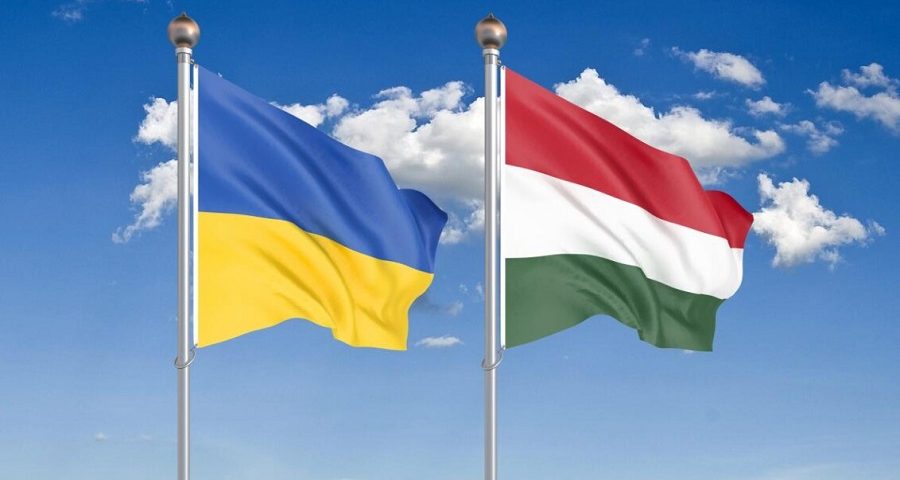
Budapest’s position on the russian-Ukrainian war is prejudiced and based on the pro-russian position of some Hungarian politicians. On the one hand, the Hungarian government headed by Viktor Orban has consistently opposed the EU sanctions against russia, threatening to block them and eventually forcing the bloc to soften its sanctions package. In addition, Hungary has also refused to suspend the expansion of the “Paks” nuclear power plant (the only nuclear power plant in Hungary), which is bein g built by the russian corporation “Rosatom”, which blocks the imposition of sanctions against the russian nuclear power industry. In addition, the country opposed the shipment of weapons through its territory to Ukraine and forced the EU not to impose sanctions on the patriarch of the Russian Orthodox Church, Kirill.
On the other hand, Hungary condemned russia’s military invasion into Ukraine and did not veto some of the EU’s sanctions against the aggressor country. At the beginning of the war, V. Orban emphasised unity and stated: “We are defending the borders of Hungary and Europe together with NATO”, and agreed with the political decisions of the EU and NATO, in particular, to ban russian banks from using the SWIFT transfer system, to ban russian flights in European airspace, and to supply Ukraine with weapons, made by the EU and NATO.
Hungary opened its eastern border to Ukrainian refugees fleeing the war. In addition, the deployment of NATO troops to the eastern flank of the alliance through Hungary is another sphere where Budapest has cooperated rather than obstructed NATO’s efforts to counter russia.
The Hungarian government has decided to allocate €187 million to participate in the upcoming EU macro-financial assistance programme for Ukraine. These funds will be used to support the energy infrastructure and healthcare system, as well as salary and pension funds.
Hungary has joined the Mine Action Coalition, which will deal with demining in Ukraine and contributes to the activities of the Lithuanian-led coalition by conducting mine action training.
Budapest has been providing humanitarian aid to Kyiv since the beginning of the full-scale invasion. Hungary has provided Ukraine with 100 lung ventilators. Most of them will be distributed to medical institutions in the frontline areas where the medical system faces the greatest difficulties.
Hungary has also allocated $3.5 million to transport 10,000 tonnes of wheat and food from Ukraine to Africa. It also donated 15 generators, six passenger buses, 128 tonnes of humanitarian aid and 100,000 litres of motor fuel to Kyiv.
Since the beginning of the full-scale russian war against Ukraine, the Hungarian Ecumenical Relief Service (HERS) has been providing support to residents of the problematic regions. Over two years of war, the organisation has reached 502,000 people, providing access to basic humanitarian aid, protection measures and other vital services in both Ukraine and Hungary. Taking into account the winter and cold weather, 300 tonnes of briquettes were distributed in Kharkiv, as well as construction materials for an apartment building. In addition, 2,301,239 kg of food, non-food items and hygiene products were delivered to Ukraine.
Another Hungarian charity, Caritas Hungary, helps our compatriots affected by the war. Over the past year, Caritas Hungary has delivered more than 300 tonnes of non-perishable foodstuffs, hygiene equipment, disinfectants, power generators, sleeping bags, mattresses and heating panels to Ukrainian towns and villages. Three district hospitals received medical instruments, surgical gowns and cortical screws. The total value of the aid delivered to Ukraine by Caritas Hungary exceeded €1,316,000 as of the end of February 2023.
Hungary remains an important commercial partner of Dnipropetrovsk region. Bilateral analysis of foreign trade demonstrates the high level of partnership.
Hungarian companies are mostly interested in ores, agricultural products, ferrous metals and products thereof, etc. According to the results of 2022, the volume of exports of goods from Dnipropetrovsk region was $138.7 million, up 60% compared to 2021.
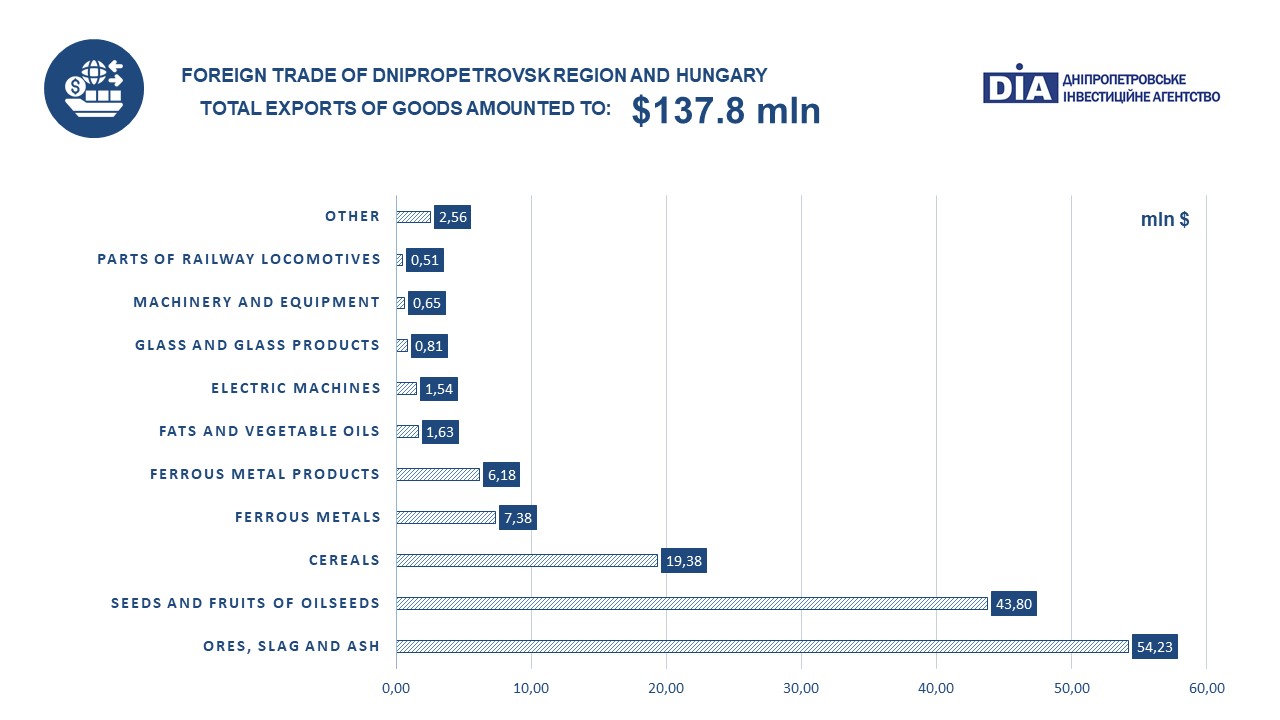
105 companies in Dnipropetrovsk region exported their products to the Hungarian market, including mining and metals companies, machine-building, processing and agricultural companies.
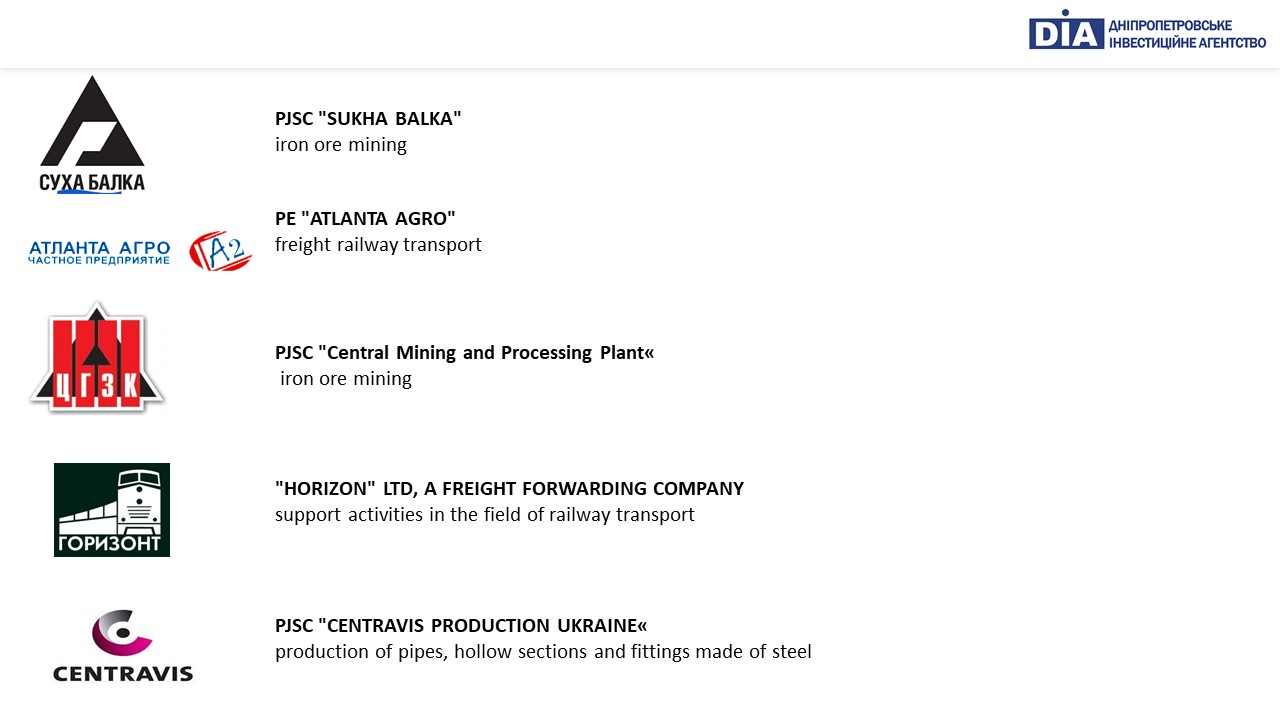
Imports of goods from Hungary to Dniproperovsk region decreased by 25.5% compared to 2021 and amounted to $61.7 million.
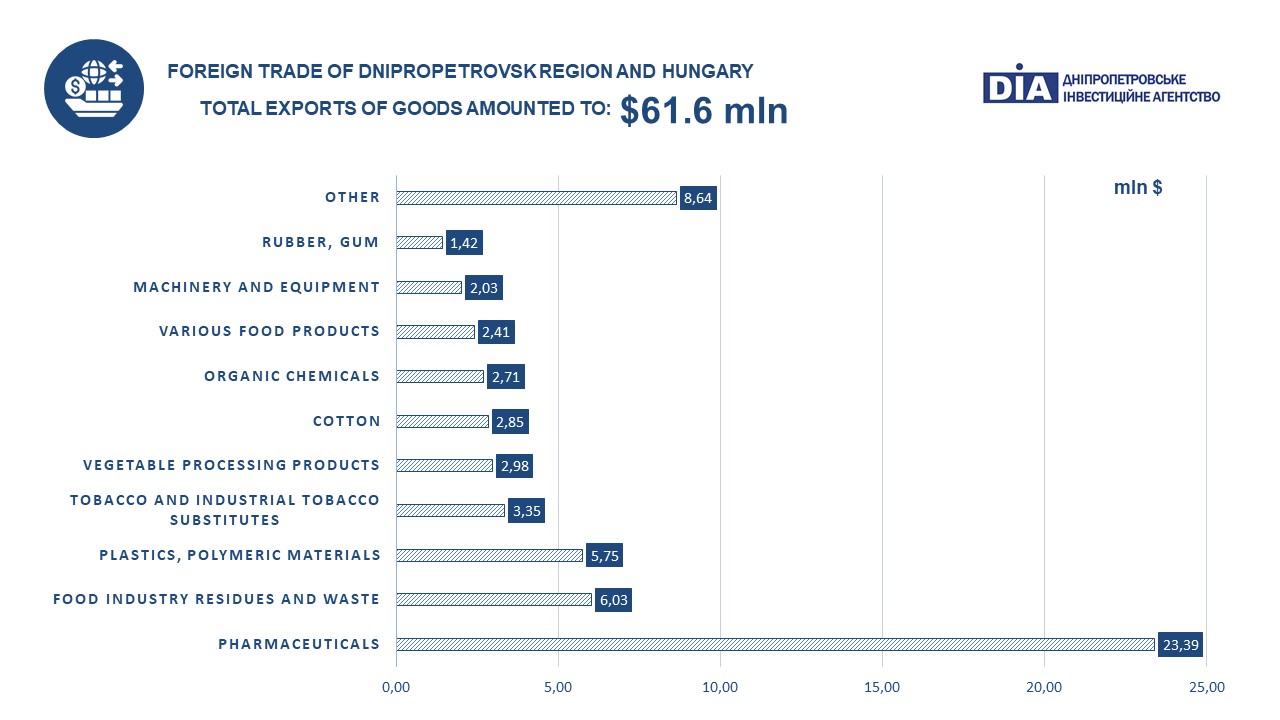
120 importers of the region bought pharmaceutical products, food industry residues, plastics and polymeric materials, etc.
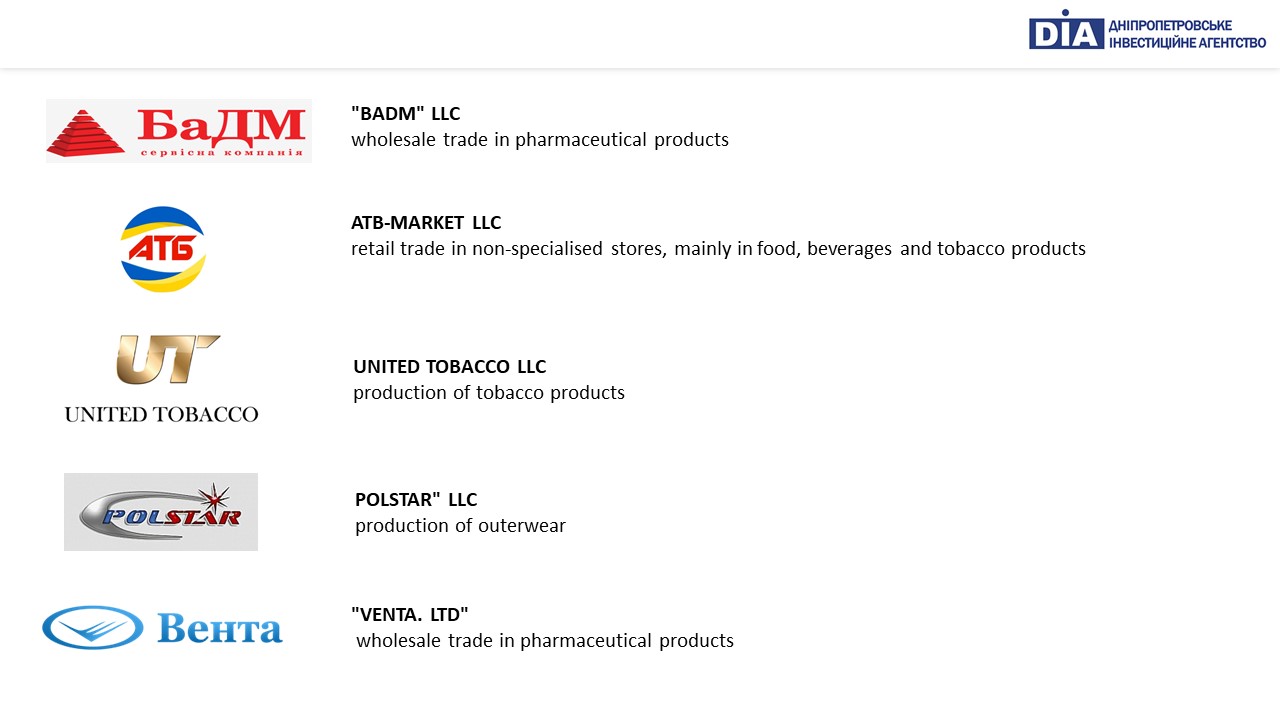
Import operations were mainly carried out by food and processing companies, trade and pharmaceutical companies.
Source: information for the article was taken from open online sources